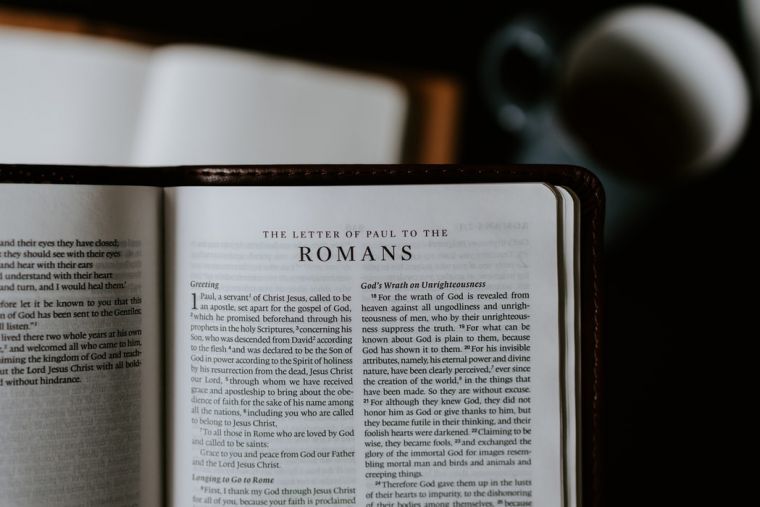The free speech of Christians in the public square must be protected

Are you free to speak in public, even if I find you insulting?
According to a coalition of unlikely allies, including Christians, secularists, comedians, and LGBT activists, you are, and have been since 2014. Back then, the coalition successfully campaigned against the criminalisation of insulting speech in section 5 of the Public Order Act 1986, which made it an offence to use "threatening, insulting or abusive" words or behaviour.
The campaign, which ran under the banner "Feel free to insult me", successfully persuaded Parliament that the value of freedom of speech to a free and democratic society was such that even shocking, offensive or disturbing speech should be robustly protected, rather than criminalised, in the public square.
Heralded as a victory for free speech, the hope was that change in the law would prevent those expressing their views in public, such as street preachers, comedians and peaceful protesters, from unlawful arrest and legal uncertainty.
And yet, London-based street preacher Hazel Lewis found herself in the headlines this week. Last winter, she was arrested for allegedly repeatedly referring to people as "sinners" and appealing to bystanders goading her, including for her biblical views on human sexuality, to "accept Jesus and God into their souls to redeem themselves from sin".
This week, after an 18 month ordeal of arrest, detention and prosecution, she finally found justice. Concerning the charge under section 5 – yes, the same section 5 of 2013 fame - the judge found that there was "no case to answer" – a ruling reserved for prosecutions so bereft of evidence that no reasonable tribunal of fact could convict based on a proper understanding of the law.
A similar situation occurred this summer with street evangelist David McConnell. He was arrested for preaching whilst being heckled by bystanders on his view on sexuality and abortion – despite that not even being the subject of his presentation. In June, West Yorkshire Police Force admitted liability and paid him damages for his troubles. Likewise, in April, John Sherwood, a 71-year-old grandfather who had been preaching in Uxbridge for over 35 years, was arrested simply for expressing his Bible-based beliefs on marriage.
Numerous other examples can be given of individuals arrested and detained, and though not prosecuted, chillingly warned not to repeat the alleged behaviour. Or individuals restricted from exercising their fundamental rights whilst an accusation about offensive speech is investigated. Or those who, after arrest, release and confirmation that their actions are perfectly legal, are simply too scared to re-engage in the lawful activity for fear that another officer may think differently – reasoning that a repeat of the ordeal is not worth risking.
How, despite changes in law specifically created to protect free speech, has it continued to be unjustly restricted in the public sphere?
A large part of the problem appears to be that the removal of the word "insulting" has done little to prevent officers from simply interpreting insulting conduct or words as "abusive", which remains an offence under the Act. CPS guidance on section 5 is unhelpful in this regard. It states, rather astonishingly, that "In the majority of cases, prosecutors are likely to find that behaviour that can be described as insulting can also be described as abusive". To the extent that this seeks to equate insulting words with abusive words, this is wrong in law and is contrary to the intent of Parliament.
Further, the laws concerning the scope of free speech protections under the Human Rights Act 1998 in the context of public order legislation are not easily navigated. When broad powers are given to police officers, it is difficult for them to apply the rigourous proportionality assessment required to correctly balance between tackling genuine public disorder and protecting the suspect's right to free speech. Officers must receive specific training and guidance (with reference to case law from both UK courts and the European Court of Human Rights), such as to equip them to handle common public order complaints.
It is also worth noting that whilst the Public Order Act does contain a specific free speech clause under section 29J (which precludes parts of the Act from being "read or given effect in a way which prohibits or restricts discussion, criticism or expressions of antipathy, dislike, ridicule, insult or abuse" of religions, beliefs and practices), this does not apply to section 5, the very section under which speech is most routinely restricted. The parts to which it does apply, perhaps tellingly, are prosecuted relatively infrequently.
The Government has a manifesto commitment to "champion freedom of expression". The opportunity to deliver on this in the public square and realign police and prosecutorial practice with Parliament's intent is presented in the Police, Crime, Sentencing, and Courts Bill 2021 – a Bill intended to improve public order legislation and due for second reading in the House of Lords in September.
As currently drafted, many, including senior police officers, have raised concerns that the Bill will hand even more powers to the state machinery at precisely the time when such powers should be narrowed or, at least, clarified in law. If free speech protecting amendments are forthcoming in the House of Lords, street preachers and others wishing to exercise their free speech rights in public will hope that the Government support them and, in so doing, deliver on the intent of Parliament in 2013 to protect free speech in the public square.
Jeremiah Igunnubole serves as legal counsel for ADF UK with a focus on litigation and advocacy in defence of freedom of speech and religion. Previously, he was a Senior Crown Prosecutor with the Crown Prosecution Service (CPS).











